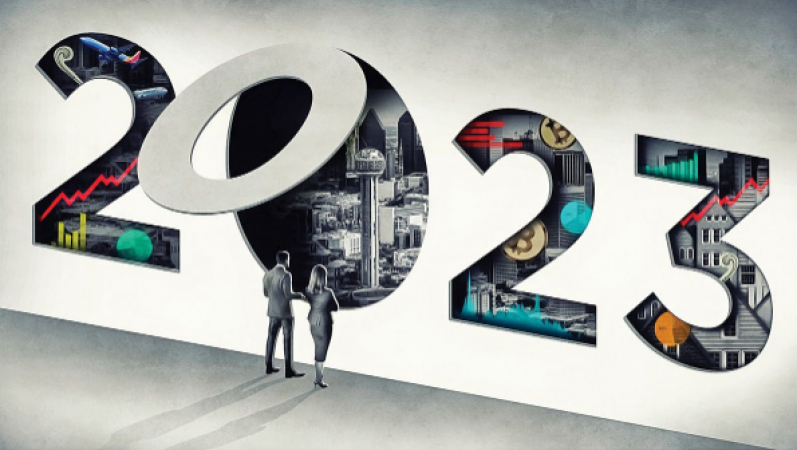
USA: The global economy is hard-pressed to satisfy its own commodity needs. Despite the past year of sky-high prices, the natural resources industry isn’t rushing to invest in more capacity to alleviate supply shortages. Without an investment boom, the only way to rebalance the market in the new year is through lowering demand.
In fact, a slowdown in the economy is already imminent. By raising interest rates, the US Federal Reserve, the Bank of England, and the European Central Bank are all firmly applying the brakes.
Britain's economy is already in a slump, and Europe is on the verge of collapse. In the US, a soft landing and a hard landing alternate. Even so, microeconomic factors like low inventories and constrained spare capacity will keep prices higher than they were during previous recessions in 2023, even if macroeconomic forces reduce some commodity cost pressures.
Also Read: Hopes for the global economy are raised by China's decision to relax Covid travel restrictions
The Bloomberg Commodity Spot Index has decreased by about 20% since its peak in June. However, the basket, which monitors the cost of more than two dozen raw materials, is now higher than it was in 2008 and 2011, when it peaked.
Oil prices have dropped from a peak of over $125 per barrel in early 2022 to around $80 per barrel by the end of the year, but they are still significantly higher than the low of less than $35 per barrel set in December 2008.
The same holds true for other commodities, including copper, coal, wheat, and tin. The commodities boom is pausing rather than coming to an end.
The resilience is a powerful indicator of the influence of those microeconomic factors and the necessity of increasing production expenditures.
Wall Street, however, is unlikely to approve a spending spree unless prices continue to rise for an extended period of time. Shareholders want dividends and share buybacks, not new initiatives, as they have endured significant losses over the past ten years. Hardcore ESG investors are categorically opposed to supporting large mines and new fossil fuel projects.
The macro bears are currently in charge. But the micro bulls will get their comeuppance as soon as the economy bottoms out, possibly as early as the end of the second quarter.
Only when capital expenditure on new projects starts to increase significantly will the commodity boom come to an end. But in 2023, that won't take place. Many Winters Are Coming, says the year that has passed. Start Energy Saving Now:
Also Read: In 2023 the world economy is projected to enter a recession
Leaders in Europe have been underestimating the scope of the energy crisis they are facing for months. Early in the summer, it was obvious that the continent was having trouble. And so it was.
The inside story of how electricity traders in the UK view the energy crisis — their concerns, hopes, and fears — is detailed in the book Listening to Electricity Traders Is Really Scary.
I apologise, but for You, Trades for Oil at $250 Per Barrel: The real action was in the diesel and jet-fuel markets, where prices went, to put it simply, CRAZY, while everyone was looking at Brent and WTI prices.
To avoid a blackout, London Paid a Record Amount: In Europe, the lights were kept on, but the price was occasionally exorbitant. Unbeknownst to most in the industry, catastrophe was occasionally averted by a very small margin.
Check Out How Much Money Cargill Made in 2017: The commodity traders were among the biggest winners of the 2022 crisis in markets ranging from natural gas to wheat, despite the political focus being on Big Oil.
Toilet Paper Crisis Illustrates How Messy Inflation Still Is: Toilet paper serves as a lens through which to view the highest inflation in 40 years. Because supply was restricted, demand is inelastic. Prices increased.
This article does not necessarily represent the viewpoint of Bloomberg LP and its owners or the editorial board.
Also Read: There is no escaping this slowdown in the world economy in 2023
Javier Blas is a commodity and energy columnist for Bloomberg Opinion. He is a coauthor of "The World for Sale: Money, Power, and the Traders Who Barter the Earth's Resources" and a former reporter for Bloomberg News and commodities editor at the Financial Times.